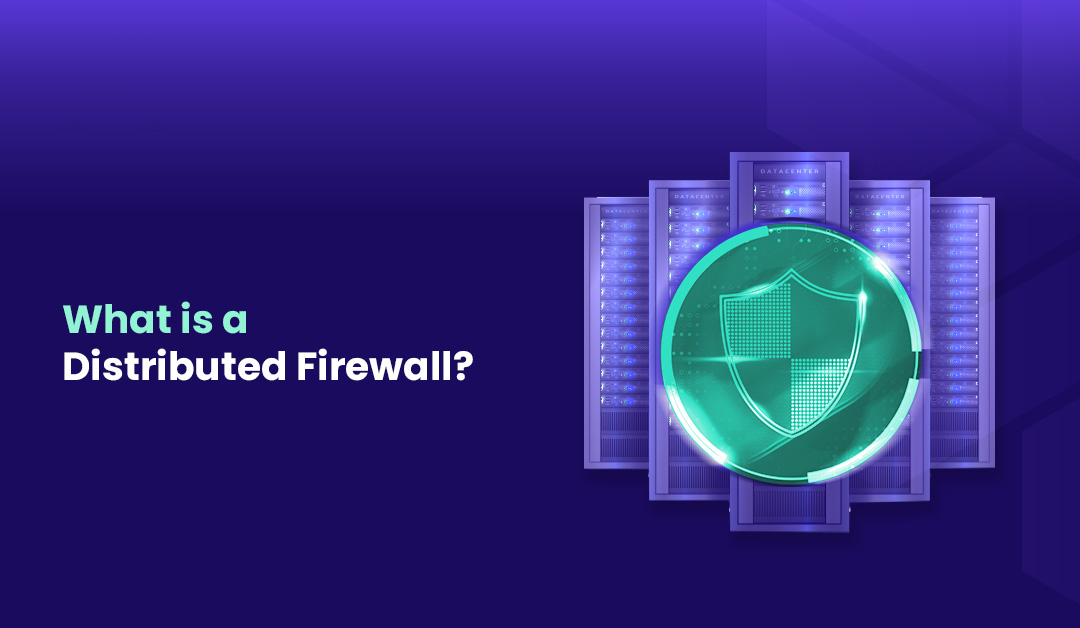What is a Distributed Firewall?
Traditional firewalls, while effective, can struggle to keep pace with the growing demands of modern IT infrastructures. This is where distributed firewalls come in, offering a more scalable and dynamic approach to network security. So what is a distributed firewall?
What is a Distributed Firewall?
A distributed firewall is a network security solution that enforces firewall policies across multiple strategic points within a network. This design allows for comprehensive traffic analysis and security checks, moving away from a centralized gateway to a more flexible, scalable approach that can keep pace with distributed and complex network architectures. It broadens the security perimeter to protect the network’s interior by preventing malicious activity from spreading internally.

How does it work?
Distributed firewalls are typically deployed as software agents on network devices. These agents communicate with a central management system, where security policies are defined and enforced. The agents then filter traffic at the source, inspecting packets directly on the device they reside on. This significantly reduces the load on the central firewall and allows for more granular control over network traffic.
Here’s a breakdown of the key functionalities:
- Deployment: Distributed firewall agents are installed on various network components like physical servers, virtual machines, and network endpoints.
- Communication: Agents communicate with a central management system, receiving security policies and updates.
- Policy Enforcement: Agents enforce the received policies, filtering traffic according to predefined rules. This can include allowing specific applications, blocking malicious traffic, and restricting access to sensitive data.
Why do enterprises need a Distributed Firewall?
The most significant difference between traditional firewalls and distributed firewalls is the manner in which they operate. A conventional firewall is deployed on a single computer to monitor the traffic it uses on a network. A distributed firewall architecture operates across an entire enterprise network using resources from multiple computers.
Traditionally, firewalls operated by defending an enterprise’s perimeter, whereby they guarded malicious traffic that came from outside the network. A distributed firewall also protects networks against malicious activities from inside an organization, such as those that target Internet Protocol security (IPsec) or IPsec VPN protocols, which have become increasingly prevalent in the modern security landscape.
Firewalls are critical to mitigating the threat of cyberattacks by monitoring for and blocking suspicious or unusual traffic from public networks like the Internet. A distributed firewall configuration provides capabilities beyond what traditional firewalls can deliver by looking for specific telltale signs of a potential cyberattack, such as suspicious Internet Protocol (IP) addresses.
Benefits of Distributed Firewalls
It offers several advantages over traditional firewalls:
- Scalability: Easily scales to accommodate growing network size by adding more agents.
- Improved Performance: Reduces network traffic on the central firewall, leading to faster performance.
- Micro-segmentation: Enables granular control over network traffic by creating security zones at the individual device level.
- Dynamic Policy Enforcement: Allows for real-time adjustments to security policies based on changing network conditions.
- Enhanced Visibility: Provides deeper insights into network activity across all devices.

Use cases of Distributed Firewalls
- Large enterprises. It is particularly useful for large corporations with extensive network infrastructure. They can manage security across multiple departments or physical locations effectively.
- Cloud computing. In cloud environments, resources are spread across various servers and locations. Distributed firewalls can provide scalable and flexible protection from various threats.
- Internet service providers (ISPs). ISPs can use distributed firewalls to offer better security services to their customers and protect their own networks.
- Organizations with remote workers. For businesses with remote employees, it can ensure that each remote connection is secure and follows the company’s security policy.
Conclusion
Distributed firewalls are a powerful new security technology that can be used to protect modern data centers and cloud environments. They offer some benefits over traditional firewalls, including improved security, increased visibility, and simplified management. If you are looking for a way to improve the security of your network, it is a good option to consider.